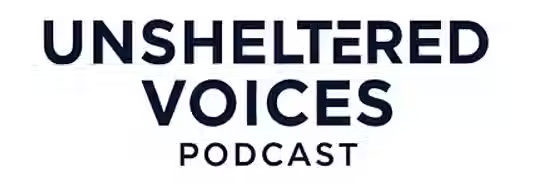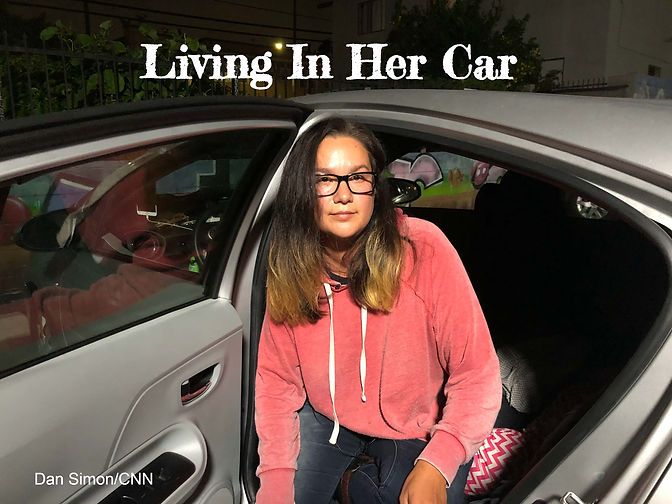


ENCOUNTERS
"I met a really interesting homeless senior on Monday, July 28th, who was passing through Colusa. He was a former elephant (animal welfare) handler. His job was to care for rescued elephants, that had been removed from situations of exploitation or neglect, and relocate them to a nurturing sanctuary or protected environment. That sounds a lot like supportive housing to me." --Susan Wagenaar


Beyond Housing: Addressing Colusa's Most Pressing Unmet Need
Beyond the critical need for housing, our direct engagement with individuals experiencing homelessness in Colusa has revealed another severe and often overlooked challenge: hygiene.
Access to showers is absolutely crucial for unhoused individuals. It's not just about cleanliness; it's fundamental for:
-
-
Seeking Employment: Maintaining personal hygiene is a basic requirement for job interviews and workplace readiness.
-
Physical and Mental Health: Regular showers prevent skin infections and contribute significantly to overall well-being.
-
Social Well-being: The ability to be clean helps individuals feel more comfortable and confident in social interactions.
-
Demonstrating Community Care: Providing access to showers sends a powerful message to unhoused individuals that their community cares about their well-being and is actively working on solutions to improve their lives.
-

Beyond the Byline: The Heartbreak of Reporting on Homelessness in Colusa
For years, my compass as a citizen journalist pointed resolutely towards objectivity. When I first turned my lens on homelessness and housing needs in Colusa, my mission was clear: to lay bare the facts, allowing the evidence itself to speak. But a profound shift has occurred within me, a quiet tremor that now challenges my very ability to maintain a purely detached stance.
My own path, having navigated a short period of homelessness and found stability in 2019, offered a foundation of understanding. Yet, understanding from afar is a world apart from direct engagement. It's one thing to dissect abstract concepts with stakeholders on a committee; it’s another entirely to sit among the directly impacted. To engage with those living rough, to hear their raw stories of survival, to witness grown men tear up as they recount the profound trauma homelessness has inflicted, or hear women shyly ask where to find free basic hygiene products – these moments cut deeper than any report.
But the most gut-wrenching revelations came from hearing firsthand accounts of life stripped bare of basic human dignities. Imagine a daily existence with zero access to a shower, left to bathe in a river, or with no safe, county-funded shelter for rest. This wasn't mere oversight; it was an accusation whispered repeatedly: it was intentional.
So, what was I to do with such a damning claim? Could such deliberate inhumanity exist? Every fiber of my being screamed that I had stumbled upon a national story – a tale of deep systemic neglect we typically associate with sprawling urban centers, not a town that looks like a Norman Rockwell painting.
As weeks bled into months, each whispered story, every unshed tear, ripped away the veil of statistics, revealing a real person grappling with the unimaginable hardship of living homeless. It was disturbing to learn of a shared conviction among our unhoused: Colusa stands as Northern California’s least supportive county for those without a home. This grim assessment came as no surprise as many had been routinely dismissed by local housing specialists with a blunt reply for assistance: 'NO FUNDING AVAILABLE.'
Witnessing the raw, frail, and stripped-bare humanity of homelessness in Colusa during this investigative series has been so gut-wrenching that sometimes I just wanted to wrap my arms around a person and comfort them, like a mother would a child, and tell them everything would be okay. But I couldn't, for I know the harsh, unyielding truth: some of the sweet souls I've met will, indeed, die homeless and alone. They will become mere statistics, providing another justification for privileged bureaucrats in high places to demand more funding to solve a problem that, tragically, too often remains stubbornly, infuriatingly unchanged—like no shower access for the homeless in Colusa, which is cruel and inhumane, yet nothing changes.
This heartbreaking reality compels us to ask difficult questions: If this level of neglect can exist in Colusa, where else are communities effectively 'hiding' their homeless populations by denying basic services, rather than addressing the problem head-on? What does it truly say about our collective values when such fundamental dignities are withheld from vulnerable people, even when solutions might be within reach?
My commitment to documenting the relentless challenges of homelessness and advocating for change in Colusa County remains unwavering. Yet, it's vital for those who follow my work to understand: this endeavor has transcended mere reporting. The humanity resonating from every single story has not just influenced; it has profoundly reshaped my objectivity. To honor the voices I've heard, to stay true to the authentic spirit of citizen journalism, I may increasingly shift my focus. My words may move from traditional articles to more pointed commentaries, offering an advocacy perspective that allows the raw, unfiltered truth of these human experiences to finally resonate as fully as they deserve.
My final word: Stop turning a blind eye. Give the homeless showers, they don't want cake.



ADVOCACY TOOL FOR WRITERS
The Homelessness Beat Reporters Collective (HBRC) is a group of journalists who have created a guide to help reporters ethically and effectively cover homelessness. The guide, released in 2025, addresses the unique challenges and ethical considerations of reporting on this complex issue. It covers topics like finding and maintaining sources, accessing data, and self-care for journalists reporting on homelessness.
Link to GUIDE









